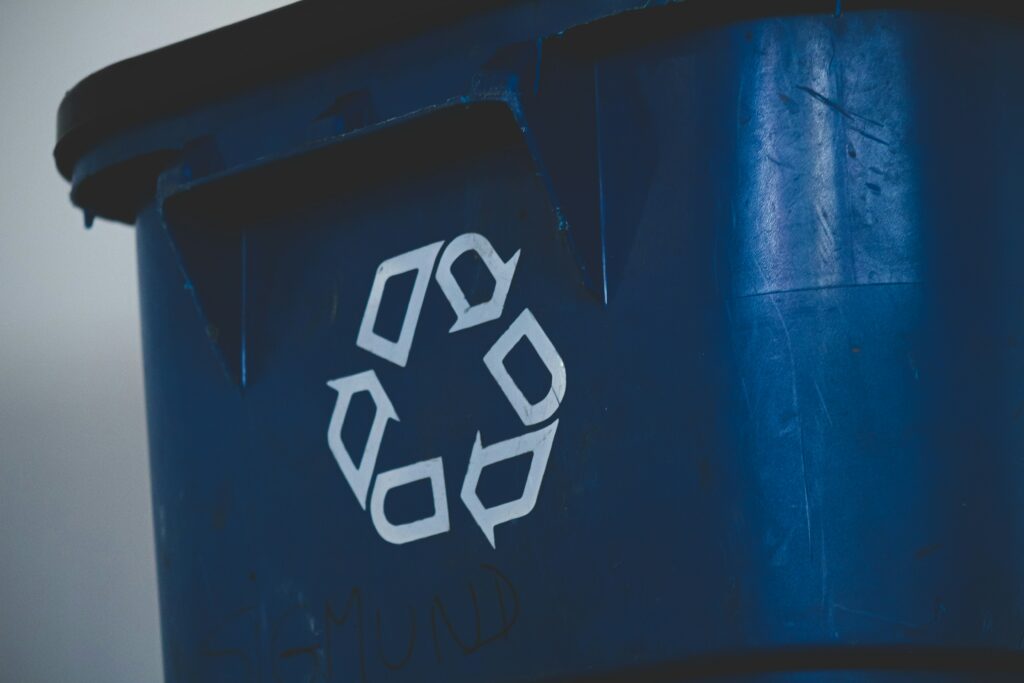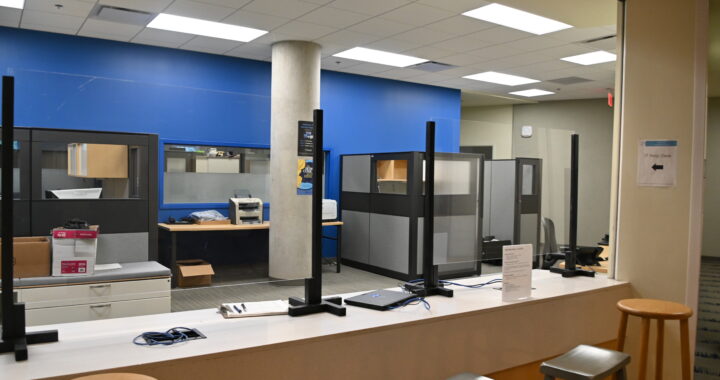Amid increased prices to recycle waste, lenient regulations statewide, UMW lacks sustainable practices across campus
4 min read
The University has committed to protecting the environment even if not required by law. Rivage / Unsplash.
By VICTORIA GALLAWAY, NATHAN EVANS AND KENZIE SCOTT
Staff Writers
China, which was once the largest export market of U.S. recyclable materials, stopped accepting America’s recycling in early 2018, thus increasing the costs of reusing materials. As a result, the University of Mary Washington has also seen an uptick in recycling costs in recent years.
“We pay A LOT,” said Holly Chichester-Morby, the University’s director of landscape and grounds. She reports that the cost of recycling has tripled since the pandemic, and as a result, local landfills have limited the amount of commercial recycling they will accept.
According to Francesca Johnson, the recycling manager at the Stafford County Regional Landfill, in 2018 the Rappahannock Regional Solid Waste Management Board decided to no longer accept commercial recycling because it was too expensive to process it.
The University relies on the private company American Disposal Services to handle both its waste and recycling, as all of Mary Washington’s recycling is classified as commercial, according to Chichester-Morby. Most of UMW’s recycling, except for the portion stored outside of the Cedric Rucker University Center, is sorted at the American Disposal Services Recycling Center in Manassas, Va. where it is then sorted and repurposed.
According to UMW’s Waste Management contract, the trash and recycling at the University Center are stored in a 28-yard split compactor. According to Chichester-Morby, this portion of recycling stored at the University Center is not recycled but instead dumped into the Stafford County Regional Landfill.
Per Chichester-Morby, it didn’t make economic or environmental sense to drive the large amounts of waste to two different locations—one for trash and another for recycling. To recycle the materials, a collection truck would have to pick up the split compactor, dump half of its contents at the recycling plant in Manassas, drive to Stafford to dump the remaining garbage at the landfill, and then return to the University.
“So the carbon footprint to drive it up to Manassas to dump one side of the compactor and to Stafford to dump the other and then back to campus … well, it’s bigger than just taking it all to the landfill and [bringing] the compactor back,” said Chichester-Morby.
While the Stafford County Regional Landfill accepts residential recycling and temporarily stores it at the landfill, this is at a large cost to the City. Chichester-Morby affirms that UMW does check with the Rappahannock Regional Solid Waste Management Board periodically to deduce whether their policies surrounding recycling have changed.
However, the recycling barriers that the University experiences are a small piece of a much larger recycling problem. Foreign countries, such as China, used to buy copious amounts of recycling from the United States, which decreased the cost of recycling for domestic companies.
However, the United States typically sends contaminated recycling abroad. As a result, China placed large restrictions on the amount of recycling that they accept, and other countries have followed suit. This led to issues in the international recycling market and has increased the cost of recycling for localities such as Fredericksburg.
Eric Bonds, a sociology professor and member of the UMW President’s Council on Sustainability, said that the burden for properly disposing of this recycling is placed on localities when it should be placed on the companies that create the waste in the first place. Many local governments in the U.S. have reduced their recycling capabilities and often opt to burn recyclable material to produce electricity instead of repurposing it into something new.
Amid increased recycling costs, UMW is still required to recycle according to Sections 10.1–1425.6 of the Code of Virginia. According to the Code, public higher education institutions in the state must recycle “at a minimum, used motor oil, glass, aluminum, office paper and corrugated paper.”
According to Chichester-Morby, the University typically maintains one-year contracts with waste disposal companies, and at the end of these contracts, qualified companies can send a public request for a proposal for a new contract. Currently, the contracts show that the cost of waste disposal has consistently increased since 2018.
UMW can also review the waste disposal deals that other state universities receive and incorporate those same deals when they look for a new provider. Chichester-Morby reports that the University chose American Disposal Services because “they were able to offer the services listed in the contract, the price for those services and the fact that they have a local representative, which is critical.”
The University commits to protecting the environment, even when it is not required by law, as indicated by the UMW President’s Council on Sustainability and the Climate Action Plan. According to the Council’s website, the committee is tasked with “making recommendations on sustainability issues and policy, developing strategies for implementation of sustainability initiatives, and providing a cohesive public face for UMW sustainability efforts.” The Climate Action Plan, which was developed in March 2022, seeks to identify and implement policies and objectives for the University to combat climate change.
Bonds said that there is room for improvement, and the best way to address the issues associated with waste management is by not creating the waste in the first place. He noted that the University commits to eliminating its reliance on single-use plastics. This commitment was made in alignment with Executive Order 77, which was issued in July 2021 and rescinded for Executive Order 17. The new executive order “calls for improved state recycling and waste reduction efforts,” according to UMW’s website. To adhere to the plan, UMW will be “introducing new waste reduction programs and expanding current recycling efforts.”


